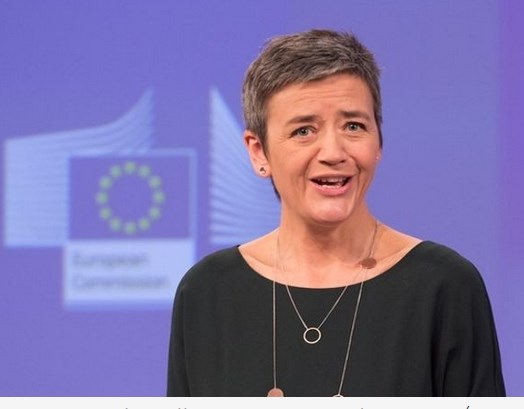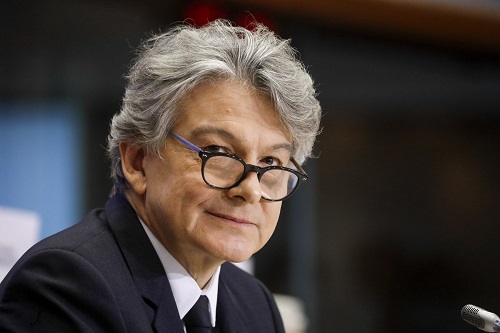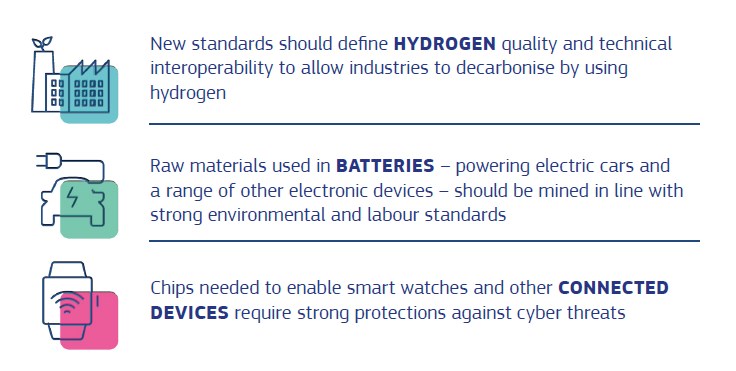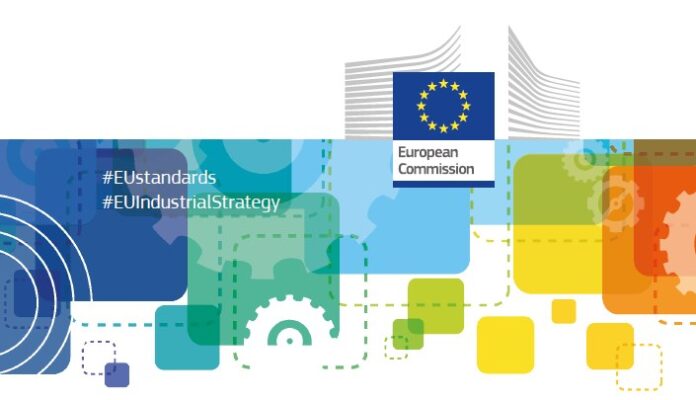This post is also available in:
![]() Română
Română
The European Commission (EC) has proposed a new approach to enable EU standards to lead the world, promoting democratic values and a resilient, green and digital single market . By setting global standards, the EU exports its values, while giving them a significant first-come, first-served advantage.

The EC presented a new standardization strategy on 2 February, highlighting the EU’s approach to standards in the single market as well as globally. The strategy is accompanied by a proposal to amend the Standardization Regulation, a report on its implementation and the Union’s 2022 annual work program on European standardization work . This new strategy aims to strengthen the EU’s global competitiveness, create a resilient, green and digital economy, and integrate democratic values into technology applications.
Standards are the implicit foundation of the EU’s single market and its global competitiveness. They help manufacturers to ensure the interoperability of products and services, reduce costs, improve safety and encourage innovation. Standards are an invisible but fundamental part of everyday life, with implications in all areas: from Wi-Fi, to connected toys, or to ski connections, to name a few. Standards provide confidence that a product or service is appropriate, safe and will not harm people or the environment. Compliance with harmonized standards ensures that products comply with EU law.
The rapid pace of innovation, the EU’s green and digital ambitions and the implications of technological standards for democratic values in the EU require an increasingly strategic approach to standardization. The EU’s ambitions for a climate-neutral, resilient, circular and resilient economy cannot be achieved without European standards . Having a strong global footprint in standardization activities and leading the way in key international fora and institutions will be key to making the EU a global benchmark for standardization. By setting global standards, the EU exports its values, while giving EU businesses a significant first-come, first-served advantage.

Margrethe Vestager , Executive Vice President for a Europe Ready for the Digital Age, says: “Ensuring that data is protected in the field of artificial intelligence or ensuring the security of mobile devices against hacking is based on standards and must be in the spirit of the EU’s democratic values. We also need standards for the implementation of major investment projects, for example in the hydrogen or battery sector, and to capitalize on investment in innovation, giving EU businesses the important advantage of first-come, first-served. “

Internal Market Commissioner Thierry Breton said: “Technical standards are of strategic importance. Europe’s technological sovereignty, ability to reduce dependencies and protection of EU values will be based on our ability to set global standards. With today’s strategy, we clearly define our priorities for standardization and create the conditions for European standards to become global benchmarks. We are taking steps to maintain the integrity of the European standardization process, placing European SMEs and the European interest at its core. “

The strategy proposes five main sets of actions
- Anticipating, prioritizing and addressing standardization needs in strategic areas:
The EU needs faster standards and in line with the European innovation and policy agenda. The Commission has identified urgencies for standardization in the production of vaccines and medicines against COVID-19, recycling of critical raw materials, the clean hydrogen value chain, low carbon cement, chip certification and data standards. Starting this year, the priorities for standardization will be clearly identified in the Union’s 2022 Annual Work Program on standardization work. A high-level forum will be set up to contribute to future standardization priorities. The Commission will establish the role of responsible standardization coordinator to provide high-level guidance throughout the Commission on standardization activities, which will be supported by an EU Center of Excellence on Standards, made up of Commission services. - Improving the governance and integrity of the European standardization system:
European standards, which support EU policy and legislation, must be decided by European actors. The Commission is proposing an amendment to the Standardization Regulation to improve the governance of the European standardization system. Although the European system will remain open, transparent, inclusive and impartial, the proposal provides that mandates for European standardization organizations, at the request of the Commission, must be managed by national delegations – national standardization bodies – of EU and EEA Member States. This will avoid any undue influence of non-EU and EEA actors on decision-making processes in the development of standards for key areas, such as cybersecurity or hydrogen standards. The Commission will continue to pay particular attention to the inclusive nature of the system, the role of SMEs and the role of civil society. The EC calls on European standardization organizations to modernize their governance structures and will launch a peer review process involving Member States and national standardization bodies to achieve better inclusion of civil society, users and favorable SME standardization conditions. . At the same time, the Commission will launch the evaluation of the Standardization Regulation. - Strengthening Europe’s leadership in global standards:
The Commission will work through the High Level Forum to set up a mechanism with EU Member States and national standardization bodies to exchange information, coordinate and strengthen the European approach to international standardization. The EC will also seek better coordination between EU Member States and partners who share the same vision. The EU will fund standardization projects in Africa and neighboring countries. - Supporting innovation:
The Commission is proposing to make better use of the potential of EU-funded research to capitalize on innovation projects through standardization activities and to anticipate early standardization needs. A “standardization promoter” will be launched to support Horizon 2020 and Horizon Europe researchers to test the relevance of their results for standardization. By mid-2022, a code of good practice for researchers on standardization will be developed to strengthen the link between standardization and research / innovation through the European Research Area (ERA). - Creating the next generation of standardization experts :
standards are based on the best experts, and Europe is facing a generational change. The Commission will promote greater academic awareness of standards, for example through the organization of future EU University Days and the training of researchers.
What is the Context
Today, standards have become a matter of global importance . Other regions are consolidating their global footprint with a more strategic and firm approach. The European standardization system needs to evolve to meet these challenges. The Commission’s plans for a new standardization strategy and the legislative adjustment of the Standardization Regulation were announced in the Commission’s document entitled ” Updating the new Industrial Strategy 2020 : building a stronger single market to support Europe’s recovery “.
A harmonized standard is a European standard developed by a recognized European standardization organization (CEN, CENELEC or ETSI), following a request from the European Commission. Once accepted, these standards are part of EU law and give manufacturers who use them throughout the single market a presumption of compliance with the requirements of EU law, helping to reduce costs for small businesses. This process is based on a public-private partnership between the Commission and the standardization community, in which the division of roles and responsibilities is guided by the 2012 Standardization Regulation.
Documentation for standardization
1. Questions and answers on the EU Standardization Strategy
2. Fact Sheet on the EU Standardization Strategy
3. An EU standardization strategy : setting global standards in support of a resilient, green and digital EU single market
4. Proposal for a REGULATION OF THE EUROPEAN PARLIAMENT AND OF THE COUNCIL amending Regulation (EU) No 182/2011 1025/2012 on the decisions of the European standardization organizations on European standards and European standardization documents
5. Report from the Commission to the European Parliament and the Council on the implementation of Regulation (EU) No 182/2011 1025/2012 in the period 2015-2020.
6. The Union’s annual work program for 2022 on European standardization work
7. Follow @EU_GROW on Twitter














